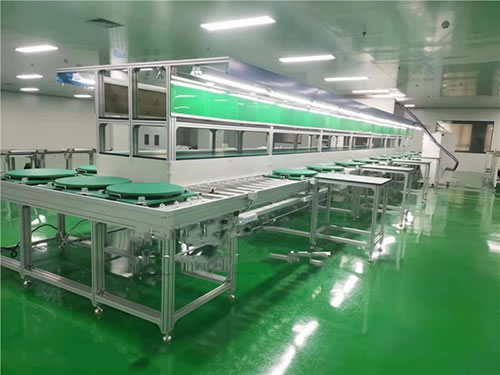Tunisia Future mainstream direction of cascade utilization of lithium battery module
# Discussion on Support Measures of Tunisian Government Policies for Enhancing Industrial Product Demand
The Tunisian government has implemented a series of policies to boost industrial product demand. On the fiscal front, tax incentives are provided, such as reducing taxes on industrial enterprises and exempting some key industries from certain taxes, which lowers production costs and makes products more competitive in price. In terms of financial support, special loan programs are established to offer low-interest loans to industrial enterprises, alleviating their financial pressure and facilitating expansion and upgrades. The government also invests in infrastructure construction, including transportation and energy facilities, which reduces logistics costs and enhances production efficiency. Additionally, there are policies promoting technological innovation, encouraging collaboration between enterprises and research institutions to develop new products and improve quality, thereby stimulating market demand. These measures collectively contribute to the growth of industrial product demand in Tunisia.

# Reuse of Cobalt-based Batteries
Cobalt-based batteries, once extensively used in various electronic devices and power systems, have a significant potential for reuse. When these batteries reach the end of their initial life cycle in certain applications, they can still retain considerable capacity and be utilized in other areas with lower energy requirements. This practice not only extends the service life of the batteries but also contributes to environmental sustainability by reducing waste.
The reuse process involves several steps. Firstly, the retired cobalt-based batteries need to be carefully assessed to determine their remaining capacity and health status. This can be done through specialized testing equipment that measures parameters such as voltage, internal resistance, and charge/discharge characteristics. Based on the assessment results, batteries with similar performance can be grouped together for reassembly.
In the reassembly stage, appropriate battery management systems (BMS) are employed. The BMS ensures the safe operation of the reused batteries by monitoring and controlling factors like temperature, voltage, and current. It prevents overcharging and overdischarging, which could potentially damage the batteries or pose safety hazards.
One common application for reused cobalt-based batteries is in energy storage systems for renewable energy sources such as solar and wind power. These batteries can store excess energy generated during periods of high production and release it when the demand exceeds the supply. They help stabilize the grid and improve the reliability of renewable energy integration.
Another potential use is in backup power systems for telecommunications and data centers. In case of power outages, the reused batteries can provide temporary power to ensure the continuous operation of critical equipment.
In conclusion, the reuse of cobalt-based batteries offers a viable solution for extending their usefulness and promoting environmental protection. With proper assessment, reassembly, and application, these reused batteries can play an important role in various fields, contributing to a more sustainable energy landscape.

# The Cascade Utilization of Lithium Battery Modules: The Vanguard of Environmental Protection in the New Energy Era
In the new energy era, the cascade utilization of lithium battery modules has emerged as a significant force for environmental protection. With the rapid development of new energy industries, the number of retired lithium batteries is increasing. Proper cascade utilization can give these batteries a "second life".
Lithium battery modules that have retired from their primary use, such as in electric vehicles, still retain a considerable amount of usable capacity. Through advanced technologies and scientific management, they can be repurposed in fields like energy storage systems. In solar and wind power generation, these cascade-utilized batteries can store intermittent energy, ensuring a stable power supply and improving the efficiency of new energy utilization.
Moreover, this cascade utilization approach helps reduce the environmental impact of battery disposal. Instead of being discarded, the batteries are given new functions, reducing the demand for raw material mining and mitigating potential pollution from battery production and disposal. It promotes the circular economy and sustainable development in the new energy sector. The cascade utilization of lithium battery modules is not only an innovative solution for resource utilization but also a powerful driving force for building a green and low-carbon future.
Overall the cascade utilization of lithium battery modules in the recycling and reuse of Tunisian cobalt acid batteries is of great significance It can not only improve the production efficiency and quality of enterprises related to the recycling and reuse of Tunisian cobalt acid batteries reduce production costs but also promote the development of enterprises in the recycling and reuse of cobalt acid batteries However there are also some problems in the application of cascade utilization of lithium battery modules in the industry of recycling and reuse of cobalt acid batteries which need further research and solutions In the future with the progress of science and technology the performance of cascade utilization of lithium battery modules will be further improved and its application in the industry of recycling and reuse of cobalt acid batteries will also become more extensive Blessings to Tunisian cobalt acid battery recycling and reuse customers We sincerely wish that Tunisian cobalt acid battery recycling enterprises could grasp the pulse of the times lead the industry trend and achieve a brighter tomorrow